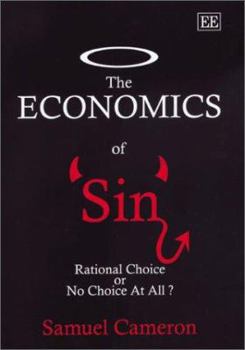The Economics of Sin: Rational Choice or No Choice at All?
The book considers the formation of religions, including the new age revival of 'wicca', as regulators of the quasi-market in sins, and goes on to appraise the role of specific sins such as lying, envy, jealousy, greed, lust, sloth, and waste in individual markets and in macroeconomic activity. Empirical evidence on issues such as cannibalism, capital punishment, addiction, adultery and prostitution is also explored. Samuel Cameron concludes that a large percentage of economic activity is intimately connected with forms of sin which are in some circumstances highly beneficial to the functioning of markets, particularly in the presence of market failure.
This innovative, interdisciplinary study of the institution of sin will be of enormous interest to a wide-ranging readership, including researchers and teachers of economics, sociology and theology. It will also be of importance for anthropologists and philosophers.





